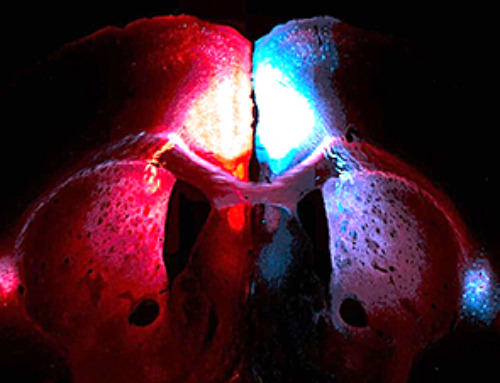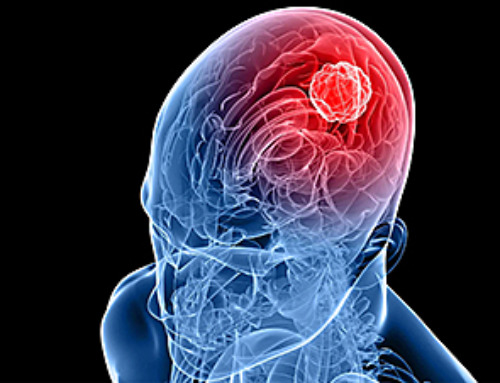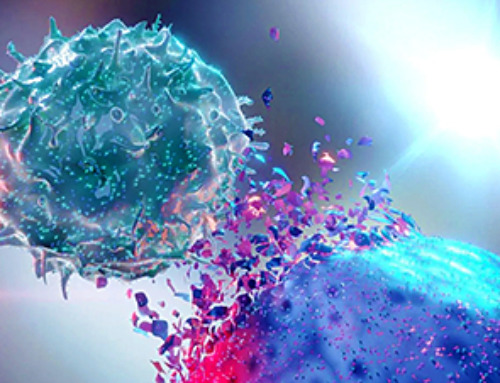Among men diagnosed with COVID-19, those with low testosterone levels are more likely to become seriously ill and end up in the hospital than men with normal levels of the hormone, according to a study by researchers at Washington University School of Medicine in St. Louis and Saint Louis University School of Medicine.
They found that men with low testosterone who developed COVID-19 were 2.4 times more likely to require hospitalization than men with hormone levels in the normal range. Further, men who were once diagnosed with low testosterone but successfully treated with hormone replacement therapy were no more likely to be hospitalized for COVID-19 than men whose testosterone levels had always tested in the normal range.
The findings, published Sept. 2 in JAMA Network Open, suggest that treating men with low testosterone may help protect them against severe disease and reduce the burden on hospitals during COVID-19 waves.
“It is very likely that COVID-19 is here to stay,” said co-senior author Abhinav Diwan, MD, a professor of medicine at Washington University. Diwan, who treats patients at Barnes-Jewish Hospital, is also a professor of cell biology & physiology, and of obstetrics & gynecology. “Hospitalizations with COVID-19 are still a problem and will continue to be a problem because the virus keeps evolving new variants that escape immunization-based immunity. Low testosterone is very common; up to a third of men over 30 have it. Our study draws attention to this important risk factor and the need to address it as a strategy to lower hospitalizations.”
Diwan and co-senior author Sandeep Dhindsa, MD, an endocrinologist at Saint Louis University, previously had shown that men hospitalized with COVID-19 have abnormally low testosterone levels. However, severe illness or traumatic injury can cause hormone levels to drop temporarily. Data from men who are already hospitalized with COVID-19 doesn’t really answer the question of whether low testosterone is a risk factor for severe COVID-19 or a result of it. For that, the researchers needed to know whether men with chronically low testosterone levels get sicker than men with normal levels.
The researchers identified 427 men with normal testosterone levels, 116 with low levels, and 180 who previously had low levels but were being successfully treated, meaning that they were on hormone replacement therapy and their testosterone levels were in the normal range at the time they developed COVID-19.
“Low testosterone turned out to be a risk factor for hospitalization from COVID, and treatment of low testosterone helped to negate that risk,” Dhindsa said. “The risk really takes off below a level of 200 nanograms per deciliter, with the normal range being 300 to 1,000 nanograms per deciliter. This is independent of all other risk factors that we looked at: age, obesity or other health conditions. But those people who were on therapy, their risk was normal.”
Men with low testosterone levels can experience sexual dysfunction, depressed mood, irritability, difficulty with concentration and memory, fatigue, loss of muscular strength and a reduced sense of well-being overall. When a man’s quality of life is clearly diminished, he is typically treated with testosterone replacement therapy. When the symptoms are mild, though, doctors and patients may hesitate to treat.
The two main concerns related to testosterone therapy are an increased risk of prostate cancer and heart disease. Prostate cancer is common in older men, and it is often driven by testosterone. Boosting testosterone could possibly speed the growth of such cancers, worsening the disease. For heart disease, the evidence for risk is more ambiguous. A large clinical trial on the relationship between heart health and testosterone supplementation is expected to be completed soon.
“In the meantime, our study would suggest that it would be prudent to look at testosterone levels, especially in people who have symptoms of low testosterone, and then individualize care,” said Diwan, whose specialty is cardiology. “If they are at really high risk of cardiovascular events, then the doctor could engage the patient in a discussion of the pros and cons of hormone replacement therapy, and perhaps lowering the risk of COVID hospitalization could be on the list of potential benefits.”
This study is observational, so it only suggests—not proves—that boosting testosterone levels may help men avoid severe COVID-19, Diwan cautioned. A clinical trial would be needed to demonstrate conclusively whether such a strategy works.
News
Rejuvenating neurons restores learning and memory in mice
EPFL scientists report that briefly switching on three “reprogramming” genes in a small set of memory-trace neurons restored memory in aged mice and in mouse models of Alzheimer’s disease to level of healthy young [...]
New book from Nanoappsmedical Inc. – Global Health Care Equivalency
A new book by Frank Boehm, NanoappsMedical Inc. Founder. This groundbreaking volume explores the vision of a Global Health Care Equivalency (GHCE) system powered by artificial intelligence and quantum computing technologies, operating on secure [...]
New Molecule Blocks Deadliest Brain Cancer at Its Genetic Root
Researchers have identified a molecule that disrupts a critical gene in glioblastoma. Scientists at the UVA Comprehensive Cancer Center say they have found a small molecule that can shut down a gene tied to glioblastoma, a [...]
Scientists Finally Solve a 30-Year-Old Cancer Mystery Hidden in Rye Pollen
Nearly 30 years after rye pollen molecules were shown to slow tumor growth in animals, scientists have finally determined their exact three-dimensional structures. Nearly 30 years ago, researchers noticed something surprising in rye pollen: [...]
NanoMedical Brain/Cloud Interface – Explorations and Implications. A new book from Frank Boehm
New book from Frank Boehm, NanoappsMedical Inc Founder: This book explores the future hypothetical possibility that the cerebral cortex of the human brain might be seamlessly, safely, and securely connected with the Cloud via [...]
How lipid nanoparticles carrying vaccines release their cargo
A study from FAU has shown that lipid nanoparticles restructure their membrane significantly after being absorbed into a cell and ending up in an acidic environment. Vaccines and other medicines are often packed in [...]
New book from NanoappsMedical Inc – Molecular Manufacturing: The Future of Nanomedicine
This book explores the revolutionary potential of atomically precise manufacturing technologies to transform global healthcare, as well as practically every other sector across society. This forward-thinking volume examines how envisaged Factory@Home systems might enable the cost-effective [...]
A Virus Designed in the Lab Could Help Defeat Antibiotic Resistance
Scientists can now design bacteria-killing viruses from DNA, opening a faster path to fighting superbugs. Bacteriophages have been used as treatments for bacterial infections for more than a century. Interest in these viruses is rising [...]
Sleep Deprivation Triggers a Strange Brain Cleanup
When you don’t sleep enough, your brain may clean itself at the exact moment you need it to think. Most people recognize the sensation. After a night of inadequate sleep, staying focused becomes harder [...]
Lab-grown corticospinal neurons offer new models for ALS and spinal injuries
Researchers have developed a way to grow a highly specialized subset of brain nerve cells that are involved in motor neuron disease and damaged in spinal injuries. Their study, published today in eLife as the final [...]
Urgent warning over deadly ‘brain swelling’ virus amid fears it could spread globally
Airports across Asia have been put on high alert after India confirmed two cases of the deadly Nipah virus in the state of West Bengal over the past month. Thailand, Nepal and Vietnam are among the [...]
This Vaccine Stops Bird Flu Before It Reaches the Lungs
A new nasal spray vaccine could stop bird flu at the door — blocking infection, reducing spread, and helping head off the next pandemic. Since first appearing in the United States in 2014, H5N1 [...]
These two viruses may become the next public health threats, scientists say
Two emerging pathogens with animal origins—influenza D virus and canine coronavirus—have so far been quietly flying under the radar, but researchers warn conditions are ripe for the viruses to spread more widely among humans. [...]
COVID-19 viral fragments shown to target and kill specific immune cells
COVID-19 viral fragments shown to target and kill specific immune cells in UCLA-led study Clues about extreme cases and omicron’s effects come from a cross-disciplinary international research team New research shows that after the [...]
Smaller Than a Grain of Salt: Engineers Create the World’s Tiniest Wireless Brain Implant
A salt-grain-sized neural implant can record and transmit brain activity wirelessly for extended periods. Researchers at Cornell University, working with collaborators, have created an extremely small neural implant that can sit on a grain of [...]
Scientists Develop a New Way To See Inside the Human Body Using 3D Color Imaging
A newly developed imaging method blends ultrasound and photoacoustics to capture both tissue structure and blood-vessel function in 3D. By blending two powerful imaging methods, researchers from Caltech and USC have developed a new way to [...]





















